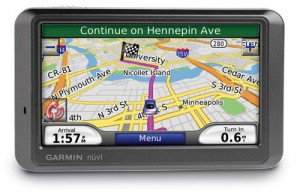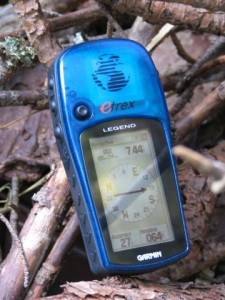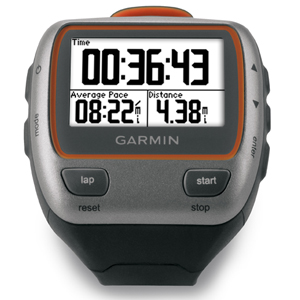When it comes to GPS tracking devices you need to understand one thing right off the bat. If you don’t learn this you could end up spending hundreds of dollars on a device that isn’t going to meet your needs by doing what you think it is going to do. If you are like me then you want to avoid spending money (that you don’t have) on something that isn’t what you need.
You need to know that there are two main types of GPS tracking devices. There are real time tracking devices and there are data logging devices. While they both are in fact GPS devices and they both track a person’s location they do no provide the same tracking experience for the user.
If you are looking for a device that will let you find out where a person or asset or vehicle is at any given point in the day then you are looking for a real time tracking device. This is what most people think about when they go searching on the internet. They want something that will let them type in a cell phone number and they will be able to pull up the exact location of a friend, a boyfriend, a lover, or a child. While a real time tracking device doesn’t do that exactly, that is the type of experience that you are going to get with that type of device.
Most real time trackers let you use their website or software to pull up the exact location of a person (really the device) at any given moment in time. This usually uses something like Google Maps and give you a location that is normally really accurate. There are things that can interfere with this, but it is usually really good.
Data loggers, on the other hand, find the devices position at predetermined intervals. This could be as short as 3 seconds or as long as 5 minutes. The interval doesn’t matter. The data logger will simply find the position and then record it on its hard drive to be downloaded later by the device owner.
With a data logger you actually have to have the tracker in order to access the data. You cannot know the location of the tracker remotely. You have to have it your possession in order for it work. With a data logger you can only ever know where the device has been.
The distinction between the two is very important to understand as each of them has its own positives and negatives. Let’s see how each of these would be used in the following applications:
Vehicle GPS Tracking Devices
There are three main reasons that people are going to track a vehicle with GPS. There are business reasons, safety reasons, and relational reasons.
Fleet Tracking
Fleets can cost companies thousands of dollars to maintain and effectively run. Studies have shown that implementation of fleet tracking benefits small businesses by increasing profits, reducing driver waste, and increasing on-time deliveries/visits.
All fleet tracking is real time. This allows dispatchers to route vehicles and personnel in efficient ways. Efficient businesses make happy, repeat customers and end up making owners more money. But just because it works in real time doesn’t mean that the data is not available for managers to go over when they need to (say, in the case of a trouble worker no completing jobs or showing up late to appointments).
These tracking devices are most often installed directly in the vehicle and are hardwired to the power supply for constant tracking capabilities. It is concealed, provides theft protection, assists police with vehicle recovery, and promotes an efficient workforce.
Data loggers would be a mess in this application and would give practically no benefit to a company trying to improve its operation.
Track A Teen Driver
Tracking a teen driver is a little different than fleet tracking, but not necessarily so. Real time tracking still provides all the benefits that it does with fleet tracking. Parents can determine the speed of their child as they drive, receive updates if they exceed a certain speed, know when they travel outside certain predetermined boundaries, or make sudden brakes. All of these are features offered on many different teen driver trackers on the market and they are only available for real time trackers.
One must be particularly careful when choosing a real time tracker. The very best option is to get one that will hardwire into the car. This will make your job as a parent easier because you won’t have to charge the battery constantly (most real time devices are power hungry!). Devices like the Zoombak – though cheaper than other devices – suffer from this very fault. A device that will not hardwire is no good as a theft recovery device and does you no good if your child is in the car and it gets car jacked! If you are concerned about your teen’s safety then why not give the best protection possible?
A data logger will still work to track a teen driver, but it is going to work much differently. You’ll still know when your child brakes suddenly or goes way too fast – you just won’t know until well after the fact and you plow through the data to figure it out. I recently tracked my wife secretly for a month and that much data is very difficult to work through – especially if your teen is driving everyday. It can be done, its just no fun.
Another thing to mention here is that data loggers are often significantly cheaper than real time GPS trackers. A good data logger might cost you $100. A real time device might cost $200 and then cost $15 a month with a year minimum contract. That is certainly more expensive. You’ll just have the weigh the pros and cons yourself about this one.
Catching A Cheater
What type of GPS tracking device is best to track a cheater? It all depends really. We have already seen that a real time tracking device is going to cost you a pretty penny. If you have the money then I would recommend going this route. That way you can verify whether or not they are at work when they say they are “working late” or if they are shaking up with the hussy from accounting at a hotel off the interstate.
You’ll probably want one that can be installed secretly in the car and that won’t be easily detectable. Unfortunately, most fleet tracking devices are either right there in the cab (under the steering wheel) or easily detectable if you look under the hood. This is fine if you are tracking someone who never really takes a look under the hood of the car. There are some other real time trackers that will work in this capacity that have a battery life of several days – but these always run the risk of being discovered while planted on the vehicle (like in a wheel well) or while they are being swapped out to recharge the battery.
Data loggers are most useful in catching a cheater than any other vehicle tracking application. They have a significantly longer battery life so they can remain in play for much longer. They are also often smaller than real time trackers so they are more suitable for the covert nature of this particular tracking application. You just have to go through the data once you get the logger back. This isn’t the most fun in the world – but neither is being cheated on! That is plenty of motivation to sift through the data.
Personal GPS Tracking Devices
When it comes to personal tracking applications there are two main reasons to have a device on your person. They are for sport and for safety.
Sport
GPS watches are one of the most visible examples of personal tracking devices used in a sport application. Whether you are running or cycling these devices provide powerful information for anyone trying to make the most out of their training regimen. They are not cheap, but they sure are cool.
Interestingly enough, these devices are almost always a data logger – despite the steep price tag. However, something like the i-Got U pretty much does a comparable task as something like the Garmin Forerunner 405 and is $200 cheaper. Sure, you certainly get more with the Garmin so you are going to have to decide for yourself if the more is really $200 more. All data loggers are pretty much equal in terms of GPS tracking capabilities – they just have different software that lets you interact with the data.
I personally have never seen a real time sport tracking device. To be honest, they are unnecessary and would be super expensive.
Safety
The second type of personal GPS tracking devices are used for personal safety. These are the the child tracking devices that will save your child if they get abducted, or the GPS tracker for Alzheimer’s suffers, or the SPOT satellite messenger that alerts your family and friends of your hiking accident. All of these devices do their tracking in real time.
Small GPS Tracking Devices
As you can imagine, many of the applications mentioned above call for small devices. You don’t want a huge, bulky device strapped to your wrist while you run. That just wouldn’t be fun. Similarly, covert tracking is best done with the smallest device possible.
What is the difference in size between real time GPS tracking devices and data loggers?
Well, the answer isn’t that simple, but generally speaking data loggers can be much smaller than real time trackers. This is simply because real time trackers also have to find a place to put its cell phone modem to let it talk over the wireless network in your particular country. Real time trackers also suffer from reduced battery life given that they have so much more to do than a data logger. If a real time tracker and a data logger have the exact same battery the real time tracker will run out of battery first – often long before the data logger.
This is why small real time trackers have a terrible battery life. One industry leading child GPS tracking device had an effective battery life of one day! That is a lot of battery charging for parents and really pushed the viability of the product as a safety device for children.
Real Time or Data Logger?
What is best for your particular tracking needs? You are the only one who is going to be able answer that question. Now you know the issues between the two types of GPS tracking devices and how they affect three of the main applications for them. If you have any questions I’ll do my best to answer them in the comments below.

 Geocaching is a sport, or a hobby depending on who you talk to, that is very similar to a treasure hunt. How it works is that a person hides an object somewhere in the world. They then post the GPS coordinates of where they hid the item on a website like
Geocaching is a sport, or a hobby depending on who you talk to, that is very similar to a treasure hunt. How it works is that a person hides an object somewhere in the world. They then post the GPS coordinates of where they hid the item on a website like  Fitness GPS are meant to be portable by their very nature. What good is a fitness GPS going to be if you can’t take it out with you and a run or on a bike ride? Not very much. As a result manufacturers make these devices small and highly mobile. Some of the best fitness GPS equipment comes in the form of a wrist watch, the Garmin Forerunner series. There are also GPS devices for cyclists, kayakers, and swimmers – giving them all a very technical look at their workouts.
Fitness GPS are meant to be portable by their very nature. What good is a fitness GPS going to be if you can’t take it out with you and a run or on a bike ride? Not very much. As a result manufacturers make these devices small and highly mobile. Some of the best fitness GPS equipment comes in the form of a wrist watch, the Garmin Forerunner series. There are also GPS devices for cyclists, kayakers, and swimmers – giving them all a very technical look at their workouts.